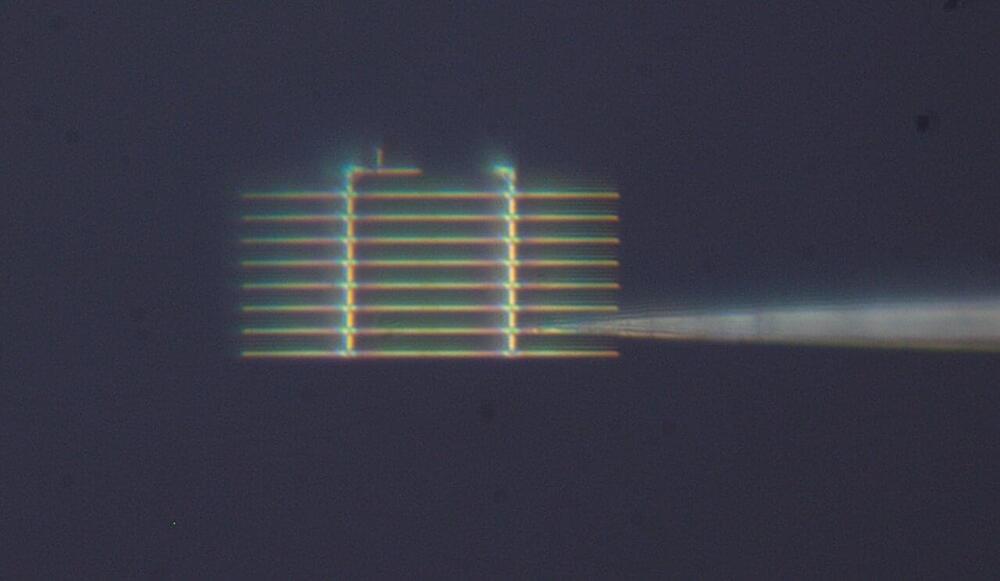In research that could jumpstart work toward the quantum internet, researchers at MIT and the University of Cambridge have built and tested an exquisitely small device that could allow the quick, efficient flow of quantum information over large distances.
Key to the device is a “microchiplet” made of diamond in which some of the diamond’s carbon atoms are replaced with atoms of tin. The team’s experiments indicate that the device, consisting of waveguides for the light to carry the quantum information, solves a paradox that has stymied the arrival of large, scalable quantum networks.
Quantum information in the form of quantum bits, or qubits, is easily disrupted by environmental noise, like magnetic fields, that destroys the information. So on one hand, it’s desirable to have qubits that don’t interact strongly with the environment. On the other hand, however, those qubits need to strongly interact with the light, or photons, key to carrying the information over distances.
